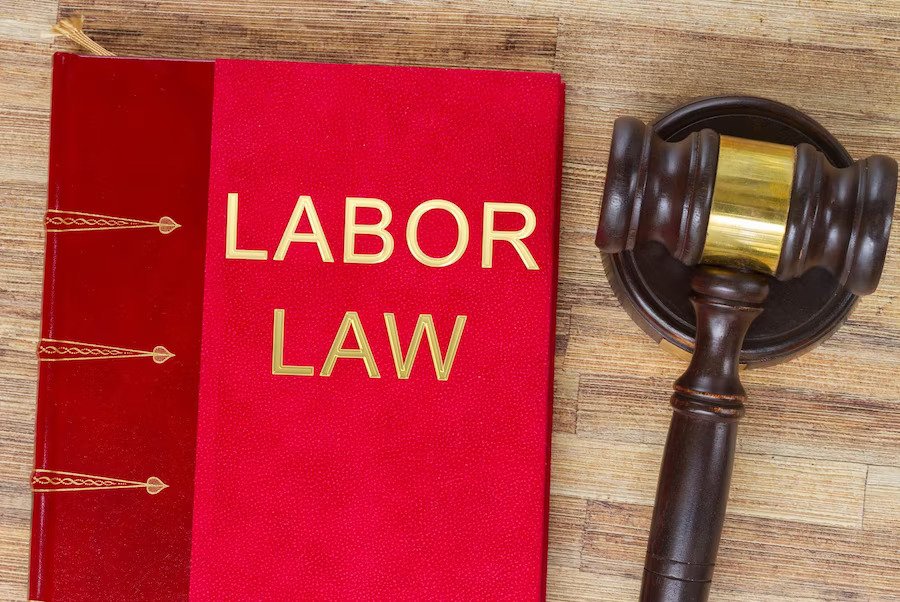Important Factors You Should Know About Florida’s Labor Law And What Your Employer Has The Rights To Do
5 Mins Read
Published on: 21 February 2023
Last Updated on: 09 September 2024

toc impalement
In the United States, each state has its own labor laws that govern the relationship between employers and employees. Florida’s labor laws, in particular, set out the legal rights and responsibilities of employees and employers in the state. Understanding Florida’s labor laws is essential for any employee in the state, as it helps them to know their rights and the boundaries within which their employers can operate.
Knowing these laws can also help employees protect themselves against discrimination and other forms of unfair treatment in the workplace. In this blog article, we will explore some of the most important factors that employees need to know about Florida’s labor laws and what rights their employers have to ensure they have a better understanding of their workplace rights.
Understanding Florida’s Labor Law
Florida’s labor law is a set of state-level regulations, statutes, and court decisions that outline the rights and responsibilities of employees and employers in the state.
It covers almost all employers and employees in Florida and sets minimum standards for working conditions, wages, benefits, and workplace safety. Florida’s labor law covers aspects such as minimum wage, overtime, leave entitlements, anti-discrimination measures, and worker’s compensation. Employees who are aware of Florida’s labor law can understand their rights and obligations in the workplace.
While Florida has its own labor laws, federal labor laws also govern the relationship between employers and employees. Federal labor laws often provide additional protections for employees. In certain instances, federal law will supersede state law if they provide greater protection. For instance, the Fair Labor Standards Act (FLSA) provides more generous minimum wage and overtime requirements than the Florida Minimum Wage Act.
Here are Some important labor laws in Florida that employees should be aware of:
- The Florida Minimum Wage Act: This law sets the minimum wage that employers must pay their employees in the state. As of January 1, 2021, the minimum wage in Florida is $8.65 per hour.
- The Florida Civil Rights Act: This law prohibits employers from discriminating against employees based on their race, color, religion, sex, national origin, age, handicap, or marital status.
- The Florida Pregnant Workers Fairness Act: This law requires employers to provide reasonable accommodations for pregnant employees, such as more frequent breaks, a private space to express milk, and temporary transfers to less strenuous jobs.
- The Florida Anti-Retaliation Act: This law prohibits employers from retaliating against employees for exercising their rights under the law, such as reporting violations of the law or filing a complaint.
Rights Of Employers


Employers have the right to hire, manage and fire their employees within the boundaries of the law. Employers can terminate an employee’s employment for various reasons such as poor performance, violation of company policies, or a reduction in the workforce. However, employers must not violate anti-discrimination laws in their hiring or firing decisions.
Employers conduct background checks as part of the hiring process to verify the information provided by the job applicant, including employment history, criminal records, and education credentials. Employers usually use background check sites like Instant Checkmate and can obtain this information from public databases, social media, or private companies that specialize in providing background check services.
If you want to learn more about how background check sites function, you can refer to an Instant Checkmate review, it’s a helpful resource, which can provide you with more insight into the topic.
Employers can use the information obtained from background checks to make employment decisions, including hiring, promotion, and firing. Employers must ensure that the information they obtain is relevant to the job applicant’s position and must adhere to anti-discrimination laws.
For instance, if the job applicant has a criminal record, employers must evaluate the type of crime committed and whether it is relevant to the job position. If it is not relevant, employers must not use it as a basis for rejecting the job applicant.
Limitations On Employers
Employers have limitations when it comes to discrimination and harassment in the workplace. Employers cannot discriminate against their employees based on their protected characteristics, such as race, sex, religion, national origin, disability, or age. Employers also have a legal obligation to maintain a workplace free of harassment, including sexual harassment.
The law protects employees from discrimination based on their race. Employers cannot refuse to hire, terminate, or discriminate against employees because of their race. Employers must also provide equal pay for employees of all races who perform similar jobs.
The law also protects employees from discrimination based on their gender, age, religion, national origin, or disability. For instance, employers cannot discriminate against employees because of their gender, including pregnancy or childbirth-related conditions. Employers must also provide reasonable accommodations for employees with disabilities to perform their job functions.
Employers must take measures to prevent harassment, including sexual harassment, in the workplace. Employers must provide employees with a clear reporting mechanism for harassment, and respond promptly and effectively to any reports of harassment.
How To Protect Yourself
Protecting yourself from discrimination and harassment in the workplace involves taking proactive steps to safeguard your rights. Employees can protect themselves by familiarizing themselves with their employer’s anti-discrimination and anti-harassment policies. This means reading and understanding the policies that prohibit such behavior in the workplace.
Additionally, employees can document any incidents of discrimination or harassment that they experience or witness. Keeping a detailed record of the dates, times, and any relevant details of the incidents can be beneficial when filing a complaint or report. If you feel comfortable doing so, you can also speak with your supervisor or HR representative and explain the situation.
If you believe your employer has violated your rights, it is important to know where to turn for help. Employees can report violations of their rights to government agencies such as the Equal Employment Opportunity Commission (EEOC) or the Florida Commission on Human Relations. These agencies investigate claims of workplace discrimination and harassment and can offer legal support. Additionally, some employers have an anonymous hotline that employees can use to report incidents of discrimination or harassment.
It is essential for employees to educate themselves about their rights and seek legal advice if necessary. This means researching the laws and policies that protect them from discrimination and harassment in the workplace.
Many employers provide training sessions on the topic, and employees can attend these to learn more about how to recognize and prevent discrimination and harassment. Employees can also consult with an employment attorney who can help them understand their legal options and guide them through the complaint process. By being informed about their rights and the resources available to them, employees can protect themselves from discrimination and harassment in the workplace.
To Sum Up The Information
Understanding Florida’s labor laws and what employers have the right to do is crucial for employees to protect themselves in the workplace. Employers have the right to manage and terminate their employees within the bounds of the law, but they must also adhere to anti-discrimination and anti-harassment laws.
Employees must be aware of their rights under the law and take proactive steps to protect themselves from discrimination and harassment. They can document incidents, speak up, and report violations to government agencies or legal services. By being informed and proactive, employees can protect their rights in the workplace and seek legal recourse if necessary.
Read Also:


















Comments Are Closed For This Article